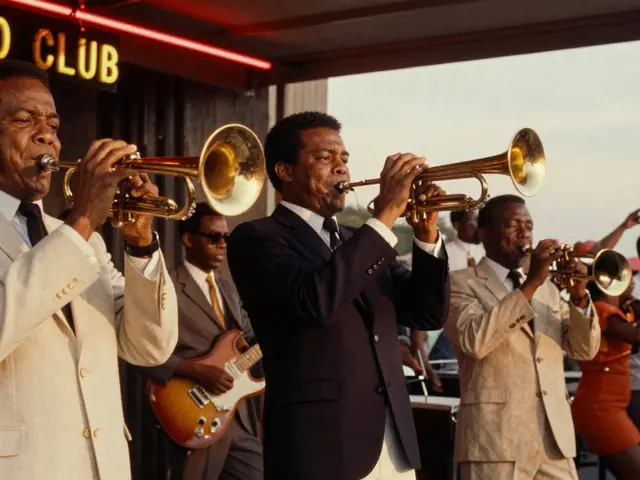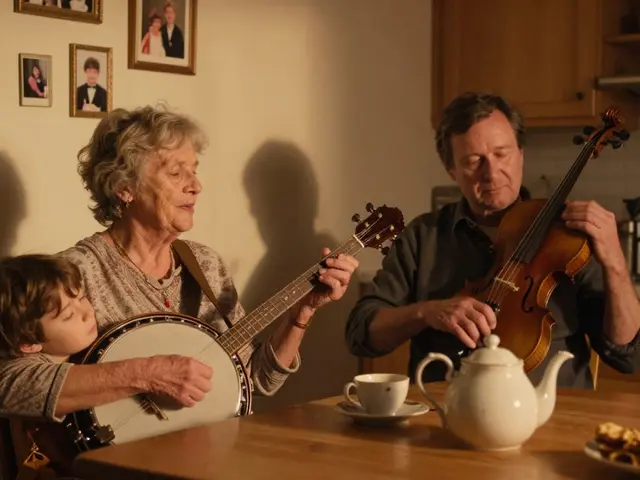Strumming the Strings for Emotional Healing
As someone who has a massive love for music, particularly the gentle strumming of an acoustic guitar, I find great comfort in the theory of music therapy. Let me be a little bit clearer about that. Music therapy, especially when it incorporates the melodies of an acoustic guitar, can work wonders for emotional healing. It's not just whimsical chatter or the unsupported claim of a music enthusiast like me. It showcases a significant wave of benefits, and even science backs this up! How exciting is that?
A body of research has surfaced over the years that focuses on the therapeutic potential of music, specifically the acoustic guitar, and its positive influence on our minds and bodies. Now, I'm no scientist, but I do love it when the things I adore also have health benefits; like dark chocolate! But, that's a story for another day. For now, let's explore the captivating world of acoustic guitars and music therapy.
The Healing Chords: Uncovering the Power of Music Therapy
Getting back on track, yes, music therapy! It's fascinating how the soothing sounds of an acoustic guitar can help reduce stress, improve mood, and even potentially aid pain management. One strum at a time, the sounds of the guitar could journey you to a place where worries take a back seat, and tranquillity takes the wheel, without having to leave the comfort of your armchair.
Researchers have found that the rhythmic patterns in music can activate the brain, which in turn, triggers our emotions. Now, couple this with the calming effects of an acoustic guitar and you have yourself a therapeutic treatment good enough to rival a full-body Swedish massage!
The Acoustic Guitar: A Therapist’s Best Friend
Let's dig into why the acoustic guitar is such a big deal in music therapy, shall we? First off, an acoustic guitar is versatile. The range of sounds it can produce allows it to cater to diverse musical tastes. Whether you’re into the soul-soothing notes of classical tunings or the head-bobbing beats of modern pop, an acoustic guitar can deliver.
Moreover, acoustic guitars are perfectly portable. This comes in handy in therapy sessions. One can easily carry it along, and there's no need for additional amplification - and that means no wrestling with tangled cords or searching for plug points; trust me, I've been there. This also makes spontaneous therapeutic sessions possible wherever and whenever needed.
Finding Your Groove: Learning to Play for Therapy
The beautiful thing about acoustic guitars in music therapy is that you don't have to be an Eric Clapton to reap the benefits. Even if you're just strumming along, clumsily at first, and gradually gaining confidence, the act of playing the guitar itself can be incredibly therapeutic.
I recall when I was struggling with some heavy feelings, it was an old, beat-up acoustic guitar that kept me company. Its strings were almost as worn out as I was, but in that rusty instrument, I found solace. I am by no means a pro, and my rendition of 'Wonderwall' would have undoubtedly made Oasis cringe, but the sheer act of creating mild cacophony had me engulfed in the present, leaving little room for negative thoughts.
Making Music Therapy Accessible
Now, let's address the elephant in the room. We, unfortunately, don't live in a utopia where everyone has access to a professional music therapist or even a musical instrument. But don't fret, there are solutions!
A great place to start could be online resources. YouTube, for instance, is chock-full of beginner-friendly tutorials for playing the guitar. And if it's the affordability of an acoustic guitar that's causing a hurdle, remember, it doesn’t have to be a high-end model. You can always scout for second-hand options, or maybe your quiet neighbour happens to have an untouched guitar stashed away—never hurts to ask, right?
The beauty of acoustic guitars in music therapy lies not just in their capacity to soothe and heal but also in their elasticity. They defy the boundaries of age and experience, and their charm resides in their availability to everyone. As we continue to recognise the therapeutic potentials of music therapy, there lies a promise for a healthier community, one strum at a time. Now I suggest we all grab our guitaleles, and start strumming!






